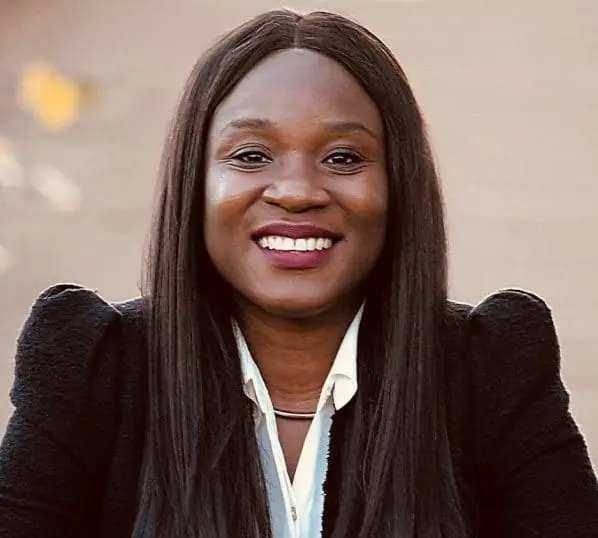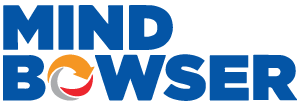Healthcare has experienced a fundamental shift in the recent few years as mobile health applications, commonly known as mHealth apps, have emerged as influential solutions. These digital solutions have allowed both patients and healthcare providers to offer effortless access to medical information records and services right in the palm of their hands.
mHealth apps have guided a modern stage of healthcare convenience and effectiveness through a focus on user-centric design and adherence to strict HIPAA compliance regulations. By making possible remote consultations and remote monitoring of important health data, these ground-breaking mHealth apps are quickly changing patient care.
MHealth app development companies and publishers need to be informed about mobile health applications in marketplaces such as the Google Play Store and Apple Store.
Apple App Store
Number of Healthcare and Medical Apps: The Apple App Store is projected to have approximately 36,000 healthcare and medical apps available by mid-2025. This reflects a gradual recovery from previous declines, indicating a renewed interest in mHealth applications as the market stabilizes and grows.
Google Play Store
Number of Healthcare and Medical Apps: The Google Play Store is expected to feature around 37,500 healthcare and medical apps in 2025. This represents an upward trend as developers continue to create new applications to meet the increasing demand for health management solutions.
The tremendous impact of mHealth apps on healthcare can hardly be overstated. These apps are not only improving patient engagement and outcomes but healthcare costs and operations are becoming more economical and efficient. Let's examine the innovative developments in mHealth apps that are changing the face of modern healthcare. You will learn how these advanced apps are widening the range of care and convenience accessible to patients.
The Latest Trends in mHealth Apps
The mHealth app market is swiftly advancing, with innovative trends consistently emerging in line with the dynamic nature of the healthcare industry.


There are various current trends in mHealth applications that include:
1. The rise of artificial intelligence (AI) and machine learning (ML) enables the development of mHealth apps that deliver personalized suggestions, detect impending health issues, and even diagnose diseases.
AI in healthcare provides the ability to analyze patients efficiently and can be considered a benefit, particularly in scenarios in which rapid medical action is required. A fine example of such an app is the Babylon app, which utilizes AI to grant users individualized healthcare advice and can even identify some diseases.
2. The increasing use of wearables and sensors for remote patient monitoring (RPM) is seen as a support for compiling data associated with an individual's health and fitness. This information can be utilized to monitor progress toward desired results, uncover possible medical issues, and provide personalized advice to fulfill the patient’s needs.

Source: Statista
The results of the survey of adults aged between 50 and 59 years conducted in June and July 2019 indicated that the prevalent percentage of the adoption of wearable technology was 22 percent, significantly higher than the 11 percent observed among those who are 70 years and older.
One such illustration is the Fitbit mHealth app, which allows users to observe and monitor their number of steps taken, pulse rate, and sleep cycles, among other metrics.
3. The growing popularity of telemedicine and telehealth, where mHealth apps are being utilized to facilitate the remote monitoring of individuals with long-term diseases. This can cut down on the requirement for in-person hospital visits and improve patient results. To illustrate, the Livongo app enables customers to monitor their blood sugar levels and gain personalized advice from diabetes educators.
4. The focus on mental health and well-being is being addressed with a variety of mHealth apps. These apps allow users to access assistance from centers, mindfulness activities, and other support services to manage and cope with stress, anxiety, and depression. For instance, the Calm app provides customers with guided meditations, sleep stories, and breathing exercises.
Calm mHealth App: www.calm.com
What is This Video About?
🌟 Herman shares his experiences and insights regarding the ViVE event and sheds light on his company's mission.
🌟 Augmental Technologies aims to improve family mental well-being by providing AI-powered personalized training to parents with children facing mental health complexities such as autism, ADHD, anxiety, and depression.
🌟 Changing the game with cutting-edge technology and an unwavering commitment to data privacy, Herman's app is changing lives for the better.
🌟 With big plans for scaling up, this game-changing platform is poised to make an even greater impact.
5. mHealth apps are adopting gamification and social elements to make them both more captivating and motivating yet effective. These unique features can help customers stay on track with their wellness goals and connect with other people who are striving to improve their health. For instance, the Nike Run Club mHealth app allows users to track their running sessions, take on challenges, compete with their peers, and win rewards.
The mHealth apps market is expected to grow significantly soon. As mHealth application technology becomes more refined and widely adopted, it has the potential to transform the way healthcare is delivered. The mHealth apps market is anticipated to remain strong in the coming years and is projected to surpass 300 billion U.S. dollars by 2025. As health concerns and trends shift, the use of mHealth applications will progress and evolve.


🔹 The Aging Population
The global demographics have an aging population, with the proportion of individuals aged 65 and above expected to jump from 9.3% in 2022 to 16.3% by 2050. There are a variety of factors that are leading to this outcome, such as declining birth rates and increasing life expectancy.
The burgeoning elderly population is a great driver for the mHealth apps market since older adults are more likely to have long-term chronic health issues and require steady medical care. The mHealth apps platform gives older adults the capability to manage their health conditions, remain independent, and age in place.
For instance, mHealth apps can be utilized by elderly people to monitor and track their key health indicators, including vital signs, medication compliance, and blood sugar levels. They can also provide seniors with educational materials and forums for support.
🔹 The Increasing Number of Chronic Diseases
The number of people with chronic diseases is on the rise, which is becoming worrisome. More and more people are suffering from long-term diseases that have a significant impact on their quality of life. This is mostly due to unhealthy lifestyle choices such as unbalanced diets, physical inactivity, and the consumption of harmful substances. According to the World Health Organization, chronic diseases account for a whopping 74% of all deaths across the globe.
Chronic conditions are a major cause of the surging demand for mHealth app services, as they require ongoing management and care. mHealth apps can help those afflicted with chronic illnesses monitor their condition, track their progress, and avoid complications.
For example, mHealth apps can assist those with diabetes in monitoring their blood sugar levels, insulin dosage, and diet. It can also provide reminders for taking medications and engaging in physical activity.
🔹 The Rising Cost of Healthcare Services
The cost of healthcare and medical services is growing on a global scale. This can be due to several causes, such as the aging population, the proliferation of chronic diseases, and the development of intricate and expensive medical equipment and technologies.
mHealth apps can help cut the cost of healthcare services through the use of remote patient monitoring, telemedicine, and self-care utilities. Such solutions can help individuals bypass unnecessary visits to the doctor or healthcare facility, saving a whole lot of money.
Telemedicine services allow individuals to consult with doctors and specialists remotely via video conferencing or other such technologies. This is especially beneficial for people who come from rural or underserved areas or who cannot travel.
🔹 The Growing Demand for Consumer-centric Healthcare
According to a recent survey, it was discovered that 59% of individuals are using the mHealth apps to monitor their well-being. Similarly, 40% of the respondents were willing to pay for the cost associated with this type of service.
mHealth can help meet this demand for increased patient engagement by giving individuals greater control over their wellness and health. For instance, mHealth apps can allow patients to monitor their health data, access educational materials, and communicate with healthcare providers.
It can also help patients cut back on healthcare costs by providing access to telemedicine services and other affordable care options.
A major interest for mHealth app developers and publishers in the United States will be the potential to use mHealth apps to help in diabetes care and prevention, as it has become a more prevalent issue in the nation. As with digital health in general, the global COVID-19 pandemic has played a major role in the future of mobile health. During the first peak of the pandemic, a significant increase was observed in the number of medical apps being downloaded.
💡 Driving Healthcare Innovation: Mindbowser’s mHealth Success Stories

Enhancing Rehabilitation with Custom mHealth App for Cardiac Care
A custom mHealth application was developed to support rehabilitation and prehabilitation for cardiac, pulmonary, and other conditions. This app offers personalized exercise programs with real-time heart rate monitoring, ensuring safety and progress tracking. Designed for Android and iOS, the user-centric platform integrates a repository of expert-recommended exercises and facilitates 24/7 telehealth support, empowering patients to manage recovery effectively. Built using React Native and AWS Cloud, the solution ensures seamless functionality across devices, promoting accessible and informed cardiac care.

Streamlining Medical Gas Sales with a Mobile Health App
A leading medical gas supplier transformed its sales process with a custom mobile health app, replacing error-prone spreadsheets and manual workflows. The app enabled on-the-spot product configuration, accurate quotes, and seamless data integration, reducing inefficiencies and enhancing sales velocity. With streamlined operations, the supplier achieved faster product launches, cost savings, and improved market responsiveness, setting a new benchmark for efficiency in healthcare supply chains.
Plus Bonus Points: Some Examples of Trends in the mHealth Apps Market
➡️ The Development of mHealth Solutions for Mental Health and Well-being
Mental health is a growing public health concern, and mHealth apps are proving the importance of supporting mental health and well-being.
Some examples of mHealth solutions for mental health and well-being include:
- Cognitive behavioral therapy (CBT) apps: These mHealth apps can help people identify and challenge negative thoughts and behaviors.
- Mindfulness and meditation apps: These apps can help users reduce stress and anxiety, improve focus, and uplift their mood.
- Sleep tracking and improvement apps: These apps can help users monitor their sleep patterns and pinpoint areas for improvement.
- Social support platforms: These Mobile Health apps can connect users with other people who are experiencing similar challenges and provide them with a supportive community.
➡️ The Use of mHealth apps for Social Determinants of Health (SDOH)
SDOH are the conditions in which people are born, grow, live, work, and grow old. These things have a considerable impact on health and well-being.
mHealth solutions can be used to address SDOH in some ways, including:
- Providing access to healthcare services: mHealth apps can help people in rural communities with access to healthcare services, such as telemedicine and remote patient monitoring.
- Empowering people to manage their health: It can assist people to keep tabs on their health data, learn about their health conditions, and make informed decisions about their care.
- Connecting people with resources and support: mHealth apps can connect people with resources and support services to tackle SDOH, such as food banks, job training programs, and housing assistance.
➡️ The Use of mHealth for Precision Medicine
Precision medicine is a new approach to healthcare that provides treatment based on the individual patient's genetic and molecular makeup.
mHealth platform can be used in precision medicine in many ways, including
- Collecting and analyzing patient data: It can be used to collect and analyze patient data, such as genetic data, lifestyle data, and environmental data. This information can then be used to develop personalized treatment plans.
- Monitoring patient response to treatment: mHealth apps are used to monitor patient reactions to treatment and make adjustments as required.
- Supporting patients in managing their treatment plans: These applications can provide patients with education and guidance to help them manage their treatment plans.
➡️ The Use of mHealth for Public Health
Public health is the science and practice of protecting and improving the health of a population.
mHealth apps can be used in public health in several ways, including:
- Surveillance and disease outbreak detection: mHealth can be used as a powerful tool to track disease outbreaks and identify areas at risk.
- Health promotion and education: Utilizing mHealth, individuals can be motivated to practice healthy habits and educate people about health risks.
- Disease prevention and management: With the use of mHealth apps, people can be better equipped to prevent and manage chronic diseases.
Overall, mHealth is a rapidly growing field with the potential to change healthcare for the better. The four trends highlighted above are just a few examples of how mHealth is being utilized to improve the health and well-being of people across the world. The mHealth apps market is a dynamic and rapidly changing domain. As new technologies emerge, we can expect to see more innovative mHealth advancements that can potentially improve the health of people around the world.
Mindbowser Role in mHealth App Development
Mindbowser has a deep understanding of the mHealth market and the unique problems of developing mobile applications for this sector. Our team of experienced developers has a successful history of designing and developing user-centric and HIPAA-compliant mHealth apps. They have covered facets like effortless data exchange, fitness tracking for holistic wellness monitoring, and, of course, virtual consultations.
We have developed and worked on various mHealth apps for healthcare service providers, such as a telemedicine solution for a US-based startup, a fitness training application using our design sprint approach, an endoscopy infrastructure on mobile, a Smart Mirro3r solution for personal health and everyday activity tracking, and more.
mHealth apps are transforming the face of healthcare by providing patients with greater access to medical care and helping them to be their healthcare captains. As the mHealth market continues to grow, we can expect to see even more innovative and transformative apps emerge in the market.
Frequently Asked Questions
- What is an mHealth platform, and how does it benefit healthcare?
An mHealth platform is a digital solution that supports healthcare services via mobile devices, enabling real-time patient monitoring, appointment scheduling, and access to medical records for improved care delivery.
- Why are mobile health apps gaining popularity in healthcare?
Mobile health apps are transforming healthcare by providing on-the-go access to medical information, fitness tracking, and teleconsultation, catering to the growing demand for convenient and personalized patient care.
- What are the latest trends in the healthcare mobile apps market?
The healthcare mobile apps market is embracing trends like AI-driven health insights, remote patient monitoring, integration with wearables, and data interoperability to enhance patient outcomes and provider efficiency.
- How are mobile health solutions shaping the future of healthcare?
Mobile health solutions are driving a shift towards value-based care by improving patient engagement, reducing costs, and ensuring better access to health services, particularly in underserved areas.

Manisha Khadge, CMO Mindbowser
Manisha Khadge, recognized as one of Asia’s 100 power leaders, brings to the table nearly two decades of experience in the IT products and services sector. She’s skilled at boosting healthcare software sales worldwide, creating effective strategies that increase brand recognition and generate substantial revenue growth.
Let's Get In Touch
One thing that really stood out to me is the culture and values of the Mindbowser team.

Sanji Silva
Chief Product Officer, Mocingbird
I am so glad I worked with Mindbowser to develop such an Impactful Mobile app.

Katie Taylor
Founder and CEO, Child Life On Call
Mindbowser was an excellent partner in developing my fitness app.

Jirina Harastova
Founder, Phalanx Ubiquity
The team understood the challenges faced by both CME administrators and clinicians and translated that understanding into building the platform. We're totally impressed by their deep domain and technology expertise in creating a solution that empowers both administrators and medical professionals.

Ian Modam
CEO & Co-Founder, Mocingbird
Mindbowser team’s expertise and dedication has been instrumental in improving our platform’s efficiency. We have observed a reduction in average delivery time since the integration. Kudos to the wonderful team!!!!

Anish J. Shah
Founder, BirthModel
Mindbowser built both iOS and Android apps for Mindworks, that have stood the test of time. 5 years later they still function quite beautifully. Their team always met their objectives and I'm very happy with the end result. Thank you!

Bart Mendel
Founder, Mindworks
Some of the features conceived, implemented, and designed by the Mindbowser staff are amongst our most popular features.

Matthew Amsden
CEO, Proofpilot
Mindbowser is one of the reasons that our app is successful. These guys have been a great team.

Dave Dubier
Founder & CEO, MangoMirror
The Mindbowser team's professionalism consistently impressed me. Their commitment to quality shone through in every aspect of the project. They truly went the extra mile, ensuring they understood our needs perfectly and were always willing to invest the time to deliver exactly what we envisioned.

Spencer Barns
Chief Technology Officer, New Day Therapeutics
Kudos for all your hard work and diligence on the Telehealth platform project. You made it possible.

Joyce Nwatuobi
CEO, ThriveHealth
Post a comment Cancel reply
Related Posts
Conquering mHealth Development: Solutions to Common App Challenges
The integration of mobile technologies in healthcare has revolutionized patient care and management. mHealth applications…
Ensuring HIPAA Compliance: Why It’s Important for mHealth Apps
Technology’s ever-onward progress has led to the development of mHealth apps. Software program packages that…
Mobile Healthcare Software Development 101: Types, Data Security and Cost
The smart devices revolution has steered in the area of apps. From easy calculators and…
Promising Power of Blockchain, ML and AI in mHealth Apps
Many rapid transformations in healthcare are being fueled by technical advancements. As we navigate the…










